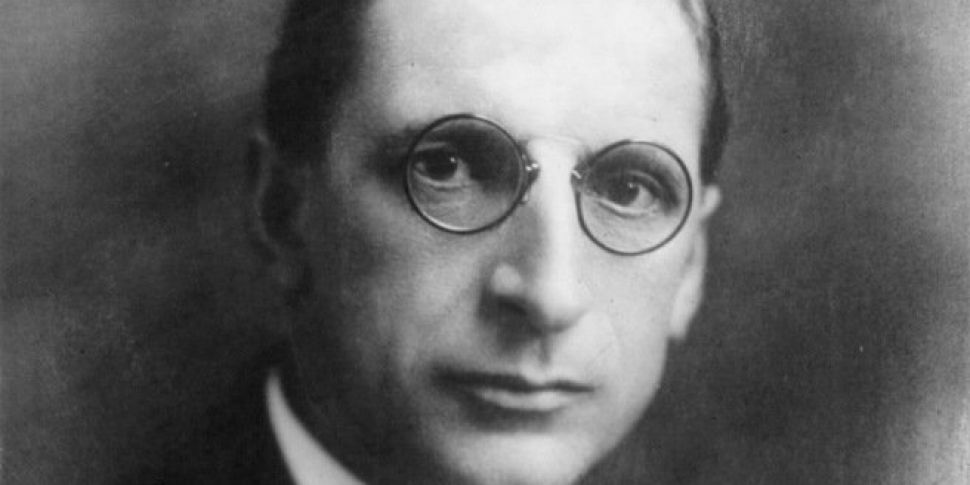Few figures in Irish history are as divisive as Eamon de Valera. The only commandant to survive the 1916 Easter Rising he became a central figure in the Republican movement and the Irish War of Independence. Though President of the Irish Republic he refused to take part in the Anglo-Irish negotiations and became a key opponent of the final treaty. While many see him as defending the principles of the Republic others see de Valera as a key instigator of the Irish Civil War.
Born to an Irish mother and a Spanish or Cuban father in New York in 1882 de Valera was sent back to his mother’s native Limerick at two years old. Here he was reared by his grandmother and her son and daughter. It was after moving to Dublin, first on scholarship to Blackrock College and later as a teacher, that de Valera’s drift toward the Republican movement began.
Though a lifelong devotee of rugby, even playing fullback for Munster around 1905, de Valera became strongly involved in the Gaelic Revival. This was mainly thanks to his passion for the Irish language and in 1908 he joined Conradh na Gaeilge. Five years later this cultural nationalism morphed into political activity and de Valera joined the Irish Volunteers in November 1913.
De Valera did not answer John Redmond’s call to sign up for the British Army in 1914 staying in Dublin instead where he rose through the ranks of the Volunteers. Becoming devoted to the republican cause de Valera was inducted into the I.R.B and raised to commandant of the Third Battalion, all in anticipation of a coming armed revolt.
When the Easter Rising began de Valera moved to occupy Boland’s Mill on Grand Canal Street. Over the next week his men would prove some of the Rising’s most capable fighters before the order to surrender arrived. The impression of de Valera, though, is far more complex.
His supporters argue that de Valera was a meticulous planner who showed strong leadership and initiative during the fighting. Others claim he gave conflicting orders, refused to sleep, and almost got himself shot when he forgot the garrison password.
Whatever the case was de Valera, as a senior figure of the Rising, was court-martialled and sentenced to death after the surrender. Unlike the other leaders though de Valera’s connection to the Fenian movement was minimal and he was considered a relatively small player. This, combined with his U.S citizenship, saw his execution commuted to penal servitude for life.
After the 1917 amnesty de Valera became a key figure in the rapidly growing Republican movement and was elected president of Sinn Fein at the end of that year. The party won a massive majority in the 1918 General Election and set out to establish an alternative government to Westminster.
Over the next three years the Irish Republican movement would seek to establish its legitimacy through violence, political action, and establishing alternatives to the established courts and police. These campaigns bore fruit at the end of 1921 when treaty negotiations with Westminster began.
In a move that shocked many De Valera did not join the delegation. Instead plenipotentiaries, most notably Arthur Griffith and Michael Collins, were sent with the powers to sign a treaty but secret instructions to return to Dublin before doing so. When the delegation returned with a signed treaty that Collins argued “gives us freedom, not the ultimate freedom that all nations desire and develop to, but the freedom to achieve it” the foundations for Civil War were set.
Many see de Valera’s support for the anti-Treaty IRA as a key factor in the outbreak and continuation of the Irish Civil War. While his support gave weight to the anti-Treaty side and may have added to the duration of the conflict he had little real power within the movement. By March 1923 he was internally advocating for a truce, which arrived in May of that year.
In 1926, realising that the abstentionist policy of Sinn Fein was ineffective, de Valera established a new political party, Fianna Fail, who were free to take their seats. In the ensuing years de Valera built Fianna Fail into the largest party in Ireland. In 1932 they entered government as the largest party, where they would remain until 1948.
As leader of the party during this period de Valera oversaw Ireland’s transition into de facto independence. The concessions in the Anglo-Irish Treaty were overturned one by one until Ireland was a republic in all but name. The crowning point of this movement was the introduction of the Irish Constitution, drafted primarily by de Valera, in 1937.
Though his legacy is in almost perpetual debate Eamon de Valera’s importance in Irish history and policy cannot be denied. What will always be fought over is whether he was good for Ireland or not.
Join Talking History as Patrick Geoghegan and a panel of renowned historians–Professor Ronan Fanning, Professor Eunan O’Halpin, Dr Mervyn O’Driscoll, and Joe Connell–debate the life and legacy of Eamon de Valera. Should he be remembered as the father of the Irish state? And was his impact good or bad?









